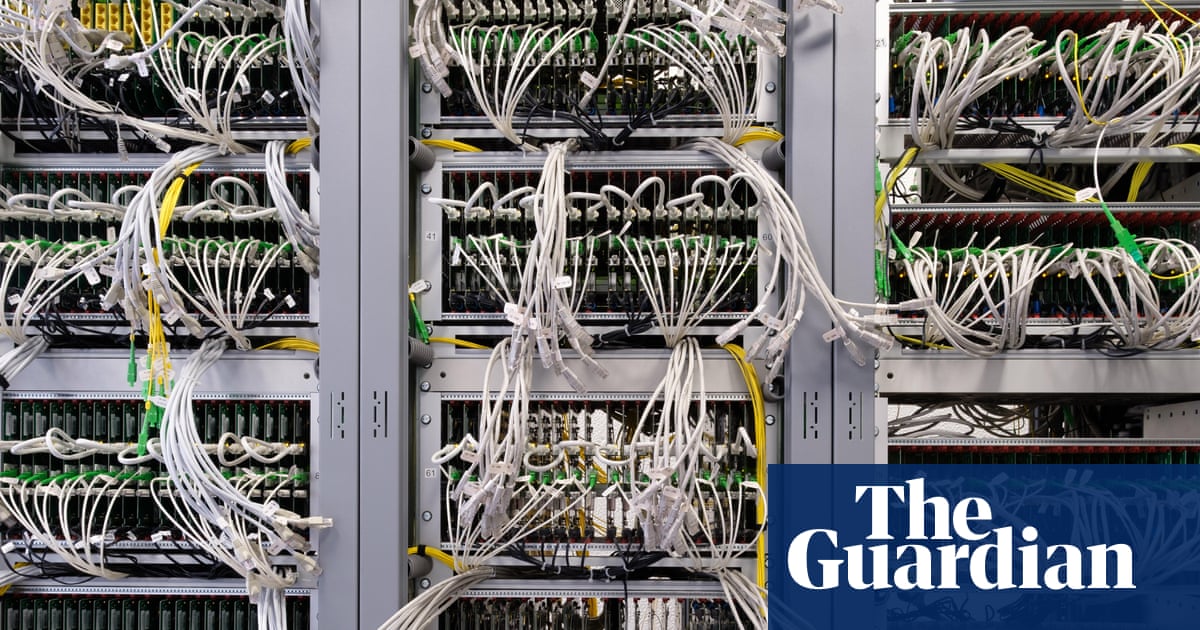Short term yes, long term no
When things get dire, the fast and high bandwidth Internet we know will be gone, but a form of slow, intermittent Internet will probably be around; still technically an Internet.
There are two ways to interpret the question.
If you go with “will the internetworking between independent diverse networks ever go offline”, the answer to that is most definitely “no”. With so many independent entities involved, and so many redundant connections, data will find a way to be routed to where it needs to go. Perhaps a coordinated attack on undersea cables might disconnect continents from each other.
But if you go with “can the commercial Internet that companies use to sell stuff ever go offline”, I think we’ve seen that the answer to that is “yes”. As more and more commerce moves “to the cloud” I think people are ignorant about how concentrates computing in a few distinct geographical areas and companies. Yes, I am aware that those companies are very good at 24/7 operation and site reliability. Until they fire so many people that they aren’t reliable anymore.
I don’t think you are wrong, but here is a bit of my perspective.
Rot has been occurring in the industry for over 10 years now. There are now fewer qualified network engineers than around the turn of the century and companies are less willing to spend money on upgrades of network infrastructure (6500 is still relevant…). Also, many ISPs, at least in the US, have merged resulting in fewer diverse networks.
The upside now at least, is that ports are easily 100g, so you could argue that we need less network equipment and fewer engineers, but I’m not sure how much that offsets the problems. And 100+g ports don’t help you properly run a network, except maybe make it a smaller problem if you need fewer ports.
Don’t threaten me with a good time…
The Internet originally was designed to be able to survive and keep on going because by its original design, there wouldn’t be major key points to take out.
This is something that happened when major companies were allowed to run crazy unchecked and centralize everything. There are even parts of the world where people think that (for example) Facebook IS the Internet, as that is all that they can see.
This is an obvious bad thing yet it was allowed to go unchecked for decades now and here we are.
Could the current Internet completely break? Oh hells yes. Would it be a bad thing? Oh hells no. Let it die. The current Internet is a shit show that should have been aborted before it became what it is today.
what mostly will go down are last sites and large providers. Smaller or distributed sites like Lemmy will survive
The Internet is fine. It’s not going anywhere and working as intended. The services over it, however, are centralized and crappy, and in part that’s due to the Internet being built for the big centers - militaries, corporations, - to impose their policy. It’s by design that it’s no use to you if the big guys don’t want it to be.
if you want something else, you need to reinvent the Internet, this one was made with a clear purpose. For militaries and universities, both quite hierarchical structures. I guess a Lemmy instance is a bit similar to such a thing.
Anything connection-oriented creates chokepoints in attempts to make it a truly open system. So if you want that, you need a data-oriented system. Such worked over the Internet once (technically still works), meaning Usenet. It was hierarchical, but its architectural principles don’t mandate hierarchy.
It’s just the way the world is.
People at some point hoped to make radio communication what the Internet was in the 90s. Yet radio eventually settled on being for one-way stations serving many people first, for professionals in aviation, military and hiking second, and for ham enthusiasts third.
People at some point dreamed of videophones, before anything digital became common, and there were such two-way communication solutions built and demonstrated even in 60s. Yet analog video settled on cable TV. Sometimes radio.
While the open and alive communication happened, like before, in public places like libraries, parks, thematic events.
It feels nice to type this comment here, but some kinds of magic just don’t work. Today’s possession of some people, me included, with digital communication being a liberating tool to change everything is similar to early XX century possession with flying machines. The machines are real and change the world, but the possession is irrational.
This post has a lot of serious answers to what is essentially a “no”:
In the UK, there is a non-virtual contingency plan, or at least there was. If the internet shuts down, the people who know how it works will meet up in a pub outside London and decide what to do, says Murdoch.
“I don’t know if this is still the case. It was quite a few years ago and I was never told which pub it was.”
The only thing that could take the entirety of the Internet for a bit of time is a massive EMF event that damages enough infrastructure to disable point-to-point communication between nodes. This means something like a Coronal Mass Ejection so large it cooks all satellites on its way in (on one side of orbit at least), then toasts a lot of other protected hardware on the ground.
The P2P nature of the internet would be hard to kill in totality with one event in any sense of the word. At the the very least, it would quick to get local infrastructure up within hours, assuming the entire DNS system isn’t destroyed.
CMEs cause very long-length disturbances so you need a conductor of quite a length to cause problems. The power grid is one example. Anything that’s on a solar panel and not connected to the grid would not be a problem because the wires are much shorter and don’t have enough space with which to build up a charge.
You seem to think the entire world is connected by fiber now. Not the case. 98% of long distance cable runs across the world are still air run copper. That won’t immediately impact high dollar facilities like datacenters or undersea cables that are interconnected, but everything else it will take a hit.
While it’s good to thought-experiment this sort of thing out to try to understand the most problematic areas, the reality is that the internet will never “completely” go down it’s too heavily distributed and not quite enough of a monoculture for even a perfect storm of worst case scenarios to conspire to bring everything down. Like the article mentions, even if only two computers are still running and networked together that is still technically an island of the “Internet”.
And even if everything somehow did completely go away for a time, of course we could start it up again, worst case we would just start making islands and then reconnecting distant islands to each other one at a time; the same way we restart that other great distributed machine: the power grid; the same way we created the Internet the first time, and actually probably much faster because most of the planning, layout, protocols and physical infrastructure is already well-established. It will just take time and work, it will be a a slow and chaotic process, modern life will grind to a halt at first, those things we rely on like the power grid, utilities, and payment networks will be prioritized but will only gradually start working again bit by bit, and it will never get back to exactly the way it was when it started, but the same sort of things happened after 9/11, in the great east coast blackout in North America, during COVID lockdowns. The world shuts down, the things we do and the way we do those things suddenly changes, becomes uncertain and difficult, non-essential stuff might not even be possible for awhile. But essential stuff mostly still gets done no matter how awkward it is to figure out how to do it. It’s not pretty or fun, but we manage, until eventually the problem has gone away and we don’t have to manage anymore.
I’m a Ham and we send digital messages including a form of electronic email over the air. I’ve exchanged the equivalent of emails across continents with no intermediary. There will always be connection where there is a will. There will be some kind of network, but it might not be the one we have today.
Harsh truth, the entire bandwidth of all the HF bands combined, not just the ham allocations, fully DC to ~30MHz, is smaller than a single mediocre home internet connection (per Shannon Hartley theorem). If even 0.1% of the world started using ham radios to do so much as send the bare minimum of ultra compact text messages to each other the entire spectrum would be clogged to the point of uselessness.
HF is great for very localized communications disruptions, but a nationwide or worldwide internet failure would not remotely be helped via HF.
You’re not wrong there. This model doesn’t scale, but there are solutions to this that can help us rebuild that I believe will get people back to a network eventually.
I participate in monthly exercises where we use a repeater system to relay messages in emergencies somewhat like how the telegraph system worked. In this way, we can re-use the limited bandwidth geographically. HF works at the current load but for higher bandwidth needs we can move to regional (say, a 10-meter net of which I know of one regional) or even local repeater systems at higher frequencies and find that much more usable bandwidth becomes available. Several US states have wide repeater networks fully operational at this moment.
In a total collapse situation we could start with HF and form new communities that can scale in much the same way that people scale to form social groups when shouting in a large room isn’t working anymore. In fact, most areas already have multiple local repeaters and sometimes an emergency net. It can happen if the demand is there in an Internet collapse situation.
There’s always an xkcd Link







